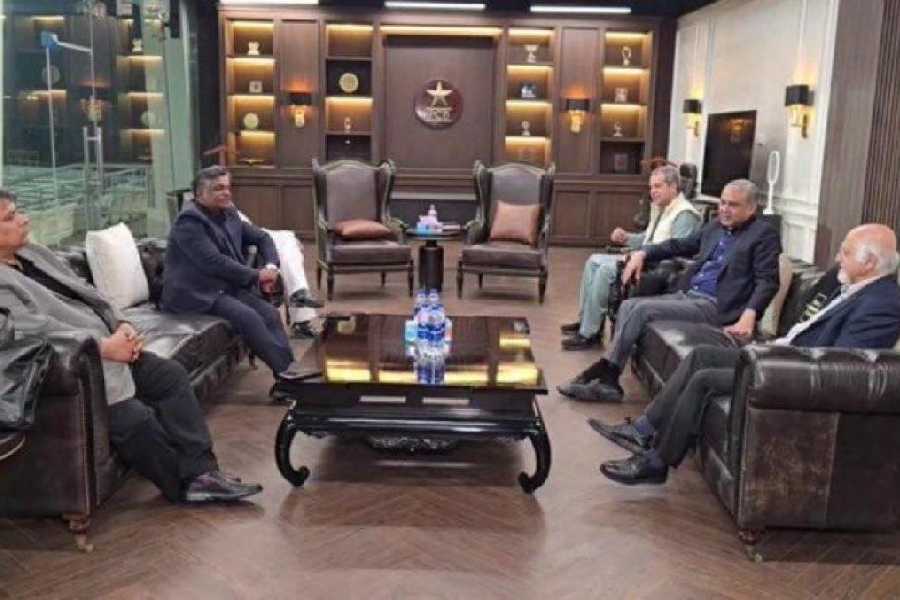 |
| Subrata Mukherjee in his office on Saturday. Picture by Bishwarup Dutta |
Calcutta, May 21: One little thing was left unchanged on Poriborton’s big day, but Subrata Mukherjee wasn’t complaining.
The gale of change that has knocked over many a chair of privilege at Writers’ Buildings has spared the seat Mukherjee had occupied 39 years ago at his first cabinet meeting, as a Congress minister.
Barely 25 then, Mukherjee, who had just won the first Assembly election of his life from Ballygunge, had sat down a couple of places to the right of chief minister Siddhartha Shankar Ray.
Last evening, when he walked into the cabinet room at Writers’ as minister of public health engineering, he pulled up a chair exactly at the same spot, this time to Mamata Banerjee’s right.
He cannot be sure if it was the same chair, but as he sat down, a flood of memories came rushing back.
“It was a very nostalgic moment for me. It was the same spot where I would sit during all the cabinet meetings between 1972 and 1977. Manuda (Ray) had made me minister of state for information and cultural affairs, and home and youth services,” Mukherjee recalled.
“I was the youngest minister then. Today I am probably the oldest. Most of my then ministry colleagues, such as Bhola Sen, Barkatda (A.B.A. Ghani Khan Chowdhury), Sitaram Mahato and even Manuda, have passed away.”
Mukherjee had fought the 1972 elections as an archaeology student of Calcutta University, while waiting for his graduation results. As minister, he had overseen the establishment of the city’s first Doordarshan Kendra on the compound of Radha Studios in Tollygunge.
In 1973, as panchayati raj minister, he had helped frame the rules for the three-tier panchayat system that the Left Front later implemented to wide acclaim. So, what next?
Mukherjee is out of Writers’ now: his office is on the seventh floor of the New Secretariat Building on Strand Road. A nameplate is yet to be affixed to his door. But he has no qualms.
“Priyada (Priya Ranjan Das Munshi) had taught me that no ministry is less important than another, and that there is no such thing as a lighter workload. If you have the will, you can deliver,” Mukherjee said, rolling up one of the sleeves of his white cotton kurta out of habit.
His PHE department’s job is to provide clean drinking water to people outside Calcutta. He says he knows how crucial water is to people — his stint as Calcutta mayor had taught him that.
“Besides, I know how it feels to go thirsty,” Mukherjee warms up, ready to recount an anecdote.
“It was 1978. Indira Gandhi was fighting an election from Chikmagalur in Karnataka and I was with her. One day she asked me to get some money from Delhi. On my way back, I flew to Mumbai but found that there was no flight to Bangalore. So I had to travel by bus for 26 hours carrying the money in a bag. I couldn’t leave my seat even for a sip of water in case the money got stolen.”
Mukherjee volunteers that he is “extremely emotional” about two people in particular: Indira Gandhi and Das Munshi.
“In 1971, while filing my candidature, I would share a room with Priyada at Mahajati Sadan. He would cook meals for the two of us, and I would have my afternoon snacks at Rakhalda’s canteen on the Calcutta University campus.”










